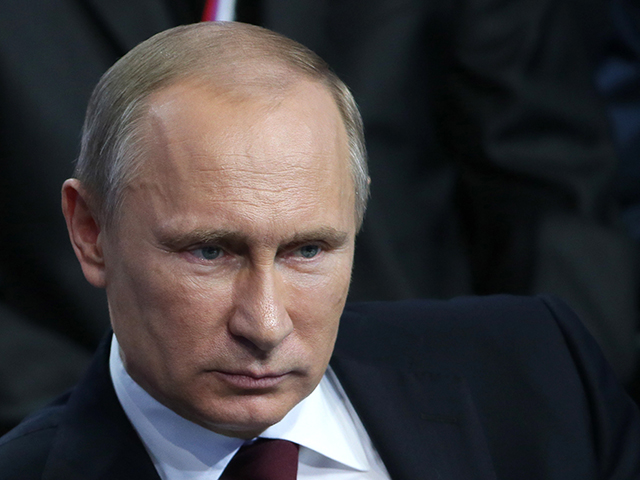Putin: The Internet Is a ‘CIA Project’; Pursues More Russian Government Control
Amy Payne /
Russian President Vladimir Putin is already at the forefront of Internet censorship, cracking down on blogger freedom. Russia’s upper house of parliament just approved a new law that will expand government control over websites.
This comes as no surprise following Russia’s comments at last week’s international Internet conference. If the Obama administration was unsure what would happen when it suggested removing the Internet from U.S. oversight, the global conference provided some hints.
Representatives from 80 countries met to discuss the future of the Internet—and each nation seemed eager to stake its own claim. Russia was no exception.
Gordon Crovitz wrote in The Wall Street Journal:
The Russian representative objected to ‘the control of one government,” calling for the United Nations to decide “international norms and other standards on Internet governance.” Last week Vladimir Putin called the Internet a “CIA project” and said “we must purposefully fight for our interests.”
Heritage experts have warned that relinquishing Internet oversight to the international arena could be dangerous for human rights, freedom of speech, and online commerce. Americans enjoy all the benefits of the Internet, but for citizens in countries like China and Russia, their governments already censor what they can see and do online.
As Crovitz reports:
The Internet ran smoothly for 25 years because the U.S. ensured that the Internet Corporation for Assigned Names and Numbers, known as ICANN, operated without government interference. Authoritarian regimes can censor the Internet in their own countries and jail their bloggers, but until now had no way to get control over the root zone filenames and addresses of the global Internet. Handing over control could allow them to undermine the open Internet globally, including Americans’ access to U.S. websites.
The discussion of what the successor to the U.S. oversight role will be, how it will operate, and what checks will be incorporated to prevent abuse by ICANN and unacceptable influence by authoritarian governments is currently underway.
Heritage experts stress that this process should proceed correctly, not just on schedule. The administration has stated that the U.S. would continue its oversight should the transition look like it is not “protecting the security, stability and resiliency of the Internet” or that it is replacing the U.S. role with “a government-led or an inter-governmental solution.”
Heritage’s Brett Schaefer says that “Congress should establish its own red lines for what would constitute an acceptable successor and hold the administration to its promise to renew the contract if the ‘multi-stakeholder’ proposal falls short.”

